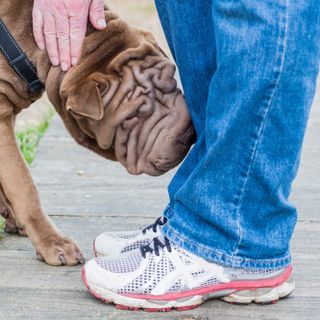July 24, 20202 min read, 301 words
Published: July 24, 2020 | 2 min read, 301 words
Business News and FinanceVIEW IN APPA Facebook iconA Twitter iconA LinkedIn iconAn email iconDogs have smell receptors up to times more powerful and accurate than humans. That allows certain trained dogs to sniff out diseases like , and Now, according to German re...
CRITIC REVIEWS
Well Sourced
July 28, 2020
Good stuff. Fascinating subject matter. Well-sourced with the full paper this write-up is based on available for the more intellectually and informationally inquisitive reader. I scanned the study and can say that the article represents a tidy little summary thereof. The Author does a good job of keeping things interesting, and moving along straightforwardly without being anfractuous. The link to the video is a nice plus and brings the story to life, so to speak. Well done and a worthwhile read. Four stars!
July 28, 2020
PUBLIC REVIEWS
Misused Image/Video
July 30, 2020
The image provided with this headline is pretty misleading. The dogs in the study were smelling saliva or tracheobronchial secretions, not people's skin/cloths. This definitely has an effect on how useful dogs would be as a screening tool. Dogs do have a great sense of smell though.
July 30, 2020
Study Misinterpreted
July 29, 2020
I believe that CNBC got a bit over-enthusiastic about this one.
The headline said dogs could sniff out “infections” but the paper itself said dogs differentiated between saliva sample from *hospitalized* patients and others.
A person who has been hospitalized may well have many differences from a person on the street, as well as a much higher viral load of COVID than an ordinary infection.
The paper itself notes that there were large differences in dogs' performance, which raises concerns about repeatability and sensitivity to more subtle levels of infection.
The paper concludes by saying the findings are preliminary and much more work is needed before this could be used in the field. Because the reported results seem likely to be so heavily impacted sample acquisition, I believe some of the fault of over-hyping the results lie with the original study authors.
I think the biggest fault is that CNBC was credulous, a button that I'd love to see Credder include. The likelihood that anything comes of this seems quite small because I don't doubt that dogs can smell differences between people who've been receiving heavy-duty (oxygen, drugs, bed rest) medical care but can't imagine how lower viral loads and non-hospital provenance of samples will achieve anything close to the 94% accuracy claimed.
July 29, 2020
